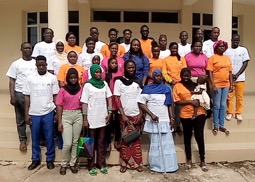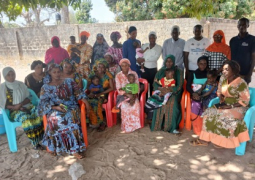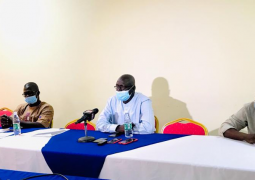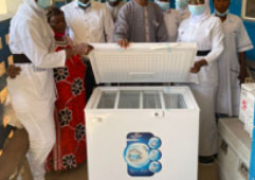
Twenty-five males and females were selected for the sensitisation while another eight females and two males were selected for the production of the reusable sanitary pad training by the Comprehensive Health Education team under the Curriculum Research Evaluation and Development Directorate (CREDD) unit of the Ministry of Basic and Secondary Education (MoBSE).
Isatou Sanyang, president of The Gambia Association for the Deaf and Hard of Hearing (GADHOH),said “this type of sensitisation program on Comprehensive Health Education teaches about our health, especially on how to protect and take good care of our body and health in terms of menstruation and hygiene, STDs, teenage and unplanned pregnancy, prevention of pregnancy, abstinence, among other sexual and reproductive health issues.”
“How to produce reusable sanitary pad, is a special package to us and it is the first time we are having it,” she added.
She noted that information gathered during the sensitisation and training would be shared with other members who were not opportune to participate.
Madam Sanyang disclosed that most of their female members do not know much about their period calculation and menstruation hygiene due to their condition.
Lamin Sonko, a sign language interpreter commended the CHE team for putting GAHDOH members in their plans.
He said registered GAHDOH members are over 3000 but it does not mean that is the total number of deaf and hard hearing people in The Gambia because there is no comprehensive survey to know the total.
Phebian Ina Grant-Sagnia, principal investigator of the project for Strengthening Access to Quality Comprehensive Health Education for in-and-out of School Adolescents in Region I, led the presentations and training team.
She said GADHOH need more attention and sensitisation because of their vulnerability.
Strengthening Access to Quality Comprehensive Health Education in The Gambia is an implementation research project conducted by the Ministry of Basic and Secondary Education and funded by the International Development Research Center (IDRC), Canada.





